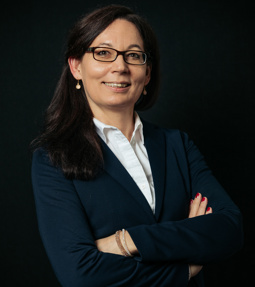Different patients with the same type of cancer can respond very differently to a specific treatment, and as a result, outcomes vary greatly between patients. Many clinical, pathological, and genetic factors make the diagnosis and choosing the right treatment for an individual patient increasingly complex.
In Medical Delta Cancer Diagnostics 3.0, the newest imaging techniques will be used together with machine learning to provide diagnosis faster and better.
At the moment, biopsies are taken to obtain information about the morphological, genetic and molecular characteristics of the tumor. Taking a biopsy is an invasive method and typically only a few 2D slices of the biopsies are imaged and analysed. Researchers from the Medical Delta Cancer Diagnostics 3.0 program believe diagnosing tumours could be improved by characterizing brain tumors and biopsies in 3D and extracting more information from them. The researchers do this by applying new MRI and optical imaging techniques.
Advanced MRI techniques
Within this program, which initially focusses on brain tumors, advanced MRI techniques are used to gather relevant information about the tumor. The researchers do this using standard in vivo MRI scans, as well as the newest MRI techniques and hardware. “For example, we will use a 7 Tesla MRI, which has a higher magnetic field and provides images with a better resolution and more information,” says Thijs van Osch, professor in the radiology department at LUMC.
The aim of comparing information gathered through conventional biopsies and information visible on the MRI scans is to deduce the genetic and molecular characteristics of the tumor from the MRI-data: a ‘virtual biopsy’.
Machine learning
In addition to obtaining better MRI images, this Medical Delta research program links them to machine learning to unlock all the information hidden in the different MRI-contrasts. Ultimately, this is expected to contribute to an even better treatment choice tailored to the individual patient, and to enable better monitoring of the tumor during treatment.
“It would be of enormous added value if we were able to better predict on the basis of all those MRI characteristics how the tumor will evolve and what that means for the patient in the future,” says Johan Koekkoek, neuro-oncologist in LUMC and MC Haaglanden.
For doctors it would very helpful to get guidance in making the right diagnosis and selecting the best treatment. “Currently, diagnosis is based on a visual assessment of the MRI scan by a radiologist,” says Marion Smits, professor of Neuroradiology at Erasmus MC. “Machine learning techniques will help us to include a lot more information from the MRI scan in our assessment, and to make such diagnoses more objectively.”
Optical imaging
A problem with ex-vivo conventional biopsies is that it is based on the processing and inspection of only a few 2D slices. This is making this technique slow, costly and destructive. In addition, only a minute fraction of the entire tissue is inspected and large scale structures can be easily missed or misidentified.
In this program the researchers will work on developing 3D imaging of whole tissue biopsies. “Imaging of the tissue in its native 3D state is expected to be more information rich and is expected to improve clinical diagnosis, and thereby facilitate treatment selection,” says dr. Jeroen Kalkman, Associate Professor in the Department of Imaging Physics (TU Delft).
Collaboration
The close collaboration that has been established between Erasmus MC, TU Delft and LUMC with MRI experts, computational scientists, engineers and clinicians is a key success factor for realizing the ambition to realize 3D image-based diagnosis of cancers. The support to provide a personalized treatment selection and treatment monitoring of brain tumors is envisioned as a template for similar Medical Delta innovations in the care of other cancer types.







